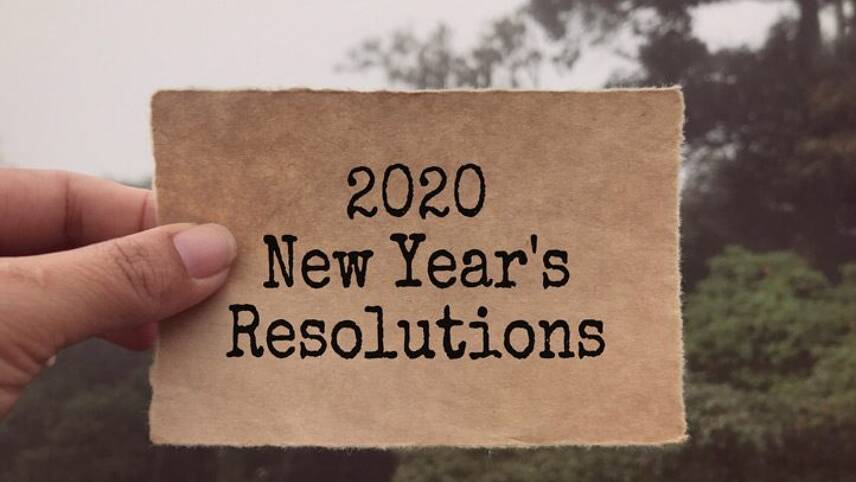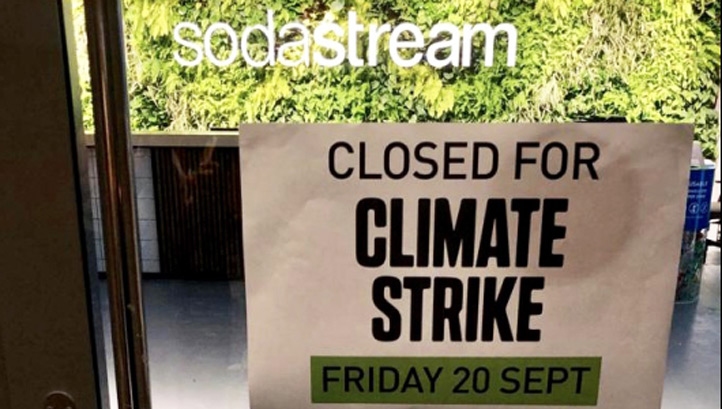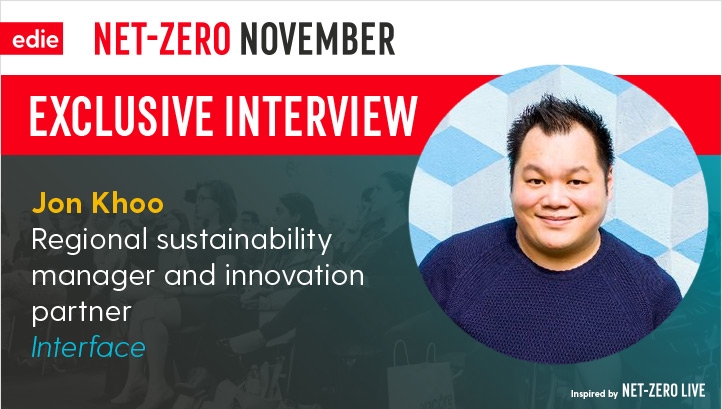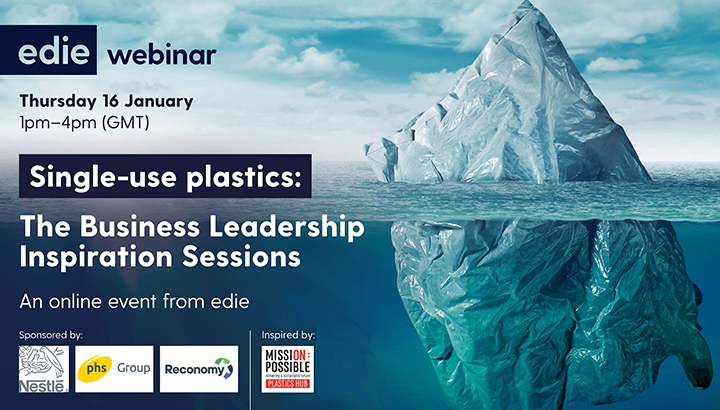Register for free and continue reading
Join our growing army of changemakers and get unlimited access to our premium content

How many of the below will you take on this year?
Last year was momentous for corporate sustainability. Against a backdrop extreme weather events and raging wildfires, 2019 saw climate change become a mainstream concern amongst the public. In turn, this has charged the political and business spheres with new considerations and demands from climate strikers, investors and other key stakeholders to ensure that actions and targets and in place to alleviate publicly declared climate emergencies.
With 2020 shaping up to be the first year in a decade of deliverance to ensure the aims of the Sustainable Development Goals and the Paris Agreement are met, there is no better time to set a New Year’s Resolution to accelerate corporate sustainability.
With this in mind, edie has highlighted 20 aspirational new goals that professionals can work towards to help drive business prosperity while alleviating some key environmental and planetary concerns.
1) Re-write your business climate action plan
The global climate emergency has finally become a mainstream issue, and sustainability – both environmental and social – has never been more prevalent on the corporate agenda. If 2019 marked the year that climate strikes made every person aware of the climate crisis, then 2020 should mark the emergency response.
A lot of corporate sustainability programmes will come to an end in 2020, and focus this year should be spent on setting bold ambitious goals that go beyond being ‘less bad’ and instead integrate climate science, regenerative supply chains, ethics and the circular economy.
2) Embed the SDGs
There is a decade left to realise the targets of the UN Development Goals (SDGs) and progress to date is leaving humanity well short of the required change. Three-quarters of British firms believe they have a role to play in furthering national and international progress against SDGs, but action goes beyond badging existing targets against one of the 17 Goals.
Instead, explore new goals that link a business contribution to the underlying sub-targets of the Global Goals where your business can have a considerable impact. Now is the time to start examining how the Global Goals can influence and drive new long-term strategies, rather than the current approach of overlaying relevant SDGs onto targets.
3) Make a net-zero pledge
Net-zero has become commonly used for commitments made either by private companies, public sector bodies or national governments and assemblies, such as the UK Government and devolved administrations, to achieving net-zero carbon and other emissions by a specified date. This commitment to net-zero, which often has a decades-long trajectory, is often accompanied by a science-based target that aligned to the Paris Agreement’s 1.5C pathway.
Whether you still need more guidance on what a net-zero target looks like for your business (download our guide here) or are really to take the leap of faith, visit edie’s Mission Possible Pledge Wall and submit your net-zero pledge this year.
4) Explore insetting
The rise in net-zero targets has created a ripple effect that seems to have put carbon offsetting back on the corporate agenda, with airlines and e-commerce platforms, in particular, using them as part of their carbon strategies. However, many green groups continue to be sceptical about the true impact of carbon offsetting.
While offsetting has its place in a carbon strategy, some companies are now exploring “insetting” – an investment or programme into nature-based carbon reduction programmes that take place within the ‘sphere of influence’ of a company, either through location, commodity or production measures. Insetting gives a business far more control and understanding of the impacts of a programme and can still involve NGOs and green groups across the entire value chain.
5) Find your Earthshot
The Duke and Duchess of Cambridge have partnered with Sir David Attenborough to launch the ‘Earthshot Prize’ – a new fund for individuals and organisations working to restore the environment.
While material impacts will vary from business to business, the private sector is chasing a common goal in unlocking innovation to help spur progress towards the Paris Agreement. Why not make 2020 the year that your business uncovers its “Earthshot” that helps combat a planetary megatrend.
6) Go to COP26
Glasgow will host the COP26 climate change summit in winter this year. COP26 is widely seen as the first major test of the UK Government’s net-zero carbon targets and its support for the climate emergency, and five years on from the Paris Agreement it will also be an opportunity for the international community to consider its efforts to scale-up carbon emission reductions and make new pledges.
It is also a great place to meet like-minded sustainability professionals and receive a valuable global temperature check on the appetite to tackle climate change, which in turn gives delegates a preview of the likely legislation to follow. Sustainability professionals that have been to previous conferences usually agree that it is a great way to invigorate and motivate themselves too.
7) Don’t let political uncertainty slow you down
Like the smoke at London’s New Year’s Eve fireworks celebration, Brexit is an omnipresent and obscuring presence. It has dominated the political sphere in the UK, often at the expense of green legislation, of which, some bills are still gathering dust in Whitehall.
However, business has proved time and time again that it can influence policy by spurring demand. In the case of 2020, business can collectively rally for green tech and closed-loop collection models that will push CSR up the political agenda. While the Brexit fallout will continue into 2020, sustainability professionals shouldn’t be shackled by short-term confusion when setting out long-term targets.
8) Take part in a Climate Strike
Shoe brand Allbirds, tea firm Pukka Herbs and PepsiCo subsidiary SodaStream were among the raft of businesses that agreed to take part in a global day of climate strikes in 2019. If you or your business is seeking out a ground-level feel for what the consumers, workers and leaders of tomorrow are demanding, then edie recommends taking part in a climate strike (we should know, we have first-hand experience).
You can even go one better and try to get other staff members to take part and bring their families along. The atmosphere of the strikes can act as a catalyst to change personal opinions on climate change and can kickstart a ripple effect that gets more people aligned to the same, climate-change-busting vision.
9) Get to grips with TCFD
The UK will not meet its 2050 net-zero goal unless corporates and investors are legally mandated to report on their climate risks and the actions they are taking to mitigate them, the Aldersgate Group has warned.
At the same time, the Bank of England has unveiled plans to introduce a mandatory and uniform climate risk test for major banks and insurers in 2021. With leading experts believing that it is “highly likely” that disclosing climate-related data to the Task Force on Climate-related Financial Disclosures (TCFD’s) will become mandatory in the next few years, it is wise to ensure that 2020 is the year that your organisation is fully aware of the requirements and the benefits that the disclosure can bring.
10) Reduce your own footprint
From cutting down on meat and dairy to taking less frequent flights, we all have individual ways that we can reduce our individual environmental impacts. While CSR professionals are already green savvy on a lot of these issues, this could be the year to go all-in on some personal decisions.
Maybe a family holiday can be travelled to by train? Maybe next Christmas isn’t about gifts but about experiences? Maybe flexitarian is fully replaced by veganism? However, realise that trying to be more sustainable is subject to the systems around us, which are inherently broken. There may be some “hypocrisy” here or there, but this is an ongoing transition, not an overnight switch.
11) Create activists in the workforce
Sustainability departments are often small and there is always a risk that sustainability as an action remains siloed within an organisation. With the need for accelerated climate action well verse, sustainability professionals should realise the transformational impact in embedding sustainability across other job functions.
Whether it is through KPIs, tapping into the zeitgeists of plastics and net-zero or just by tweaking communication skills to make sustainability more relevant across all functions, sustainability professionals can develop an array of softer skills to create a workforce of climate activists.
12) Convert a sceptic
Like the above revolution, getting outside of the echo chamber that sustainability professionals can sometimes reside in is key to accelerating change. If you can convert the sceptics and cynics, you’ll have a well-oiled machine that is fully charging towards a decarbonised and closed-loop economy.
This extends to the public as well as internally. If you’re a consumer-facing brand, there is a unique opportunity to engage with citizens who have different thoughts, beliefs and concerns, which in turn can spark new behaviours. So, make 2020 the year you vow to engage the unengaged, although please bear in mind that President Trump is inundated with tweets on a daily basis.
13) Combat greenwash
Speaking of engaging with others, as sustainability becomes more mainstream and appealing to the consumer, the risk of greenwash can also increase. From low-carbon products and services that don’t consider embodied or lifecycle emissions to plastic alternatives that also won’t get recycled, sustainability professionals must swim against the tide to ensure that communications are succinct.
While storytelling is a vital way to get stakeholders engaged with your sustainability journey, you need to ensure that the reporting and marketing teams can easily explain how a product is sustainable and how it should be disposed of at end of life. If you’re firm has a great story to tell, make 2020 the year that you roll out a clear and engaging comms strategy built on disclosure, truth and trust.
14) Stop viewing carbon as the enemy
One of the key messages of carpet manufacturer Interface’s Lessons for the Future report is to “live zero and love carbon”, noting businesses should aim for zero negative impact on the environment and to “stop seeing carbon as the enemy, and start using it as a resource” and prototypes are now being developed and improved by the firm to deliver “carbon-negative” flooring tiles, meaning that atmospheric emissions are actually reduced after the manufacturing process.
Why not make 2020 the year that your business started looking at how carbon capture and even carbon integration can be used to create a valuable raw material that can enhance product specifications and cut key environmental footprints if treated correctly.
15) Keep your mental health in check
Corporate sustainability, at any level, can sometimes feel like swimming against the tide, especially when looking at the global devastation that climate change continues to cause. George Monbiot believes “we can keep our eco-anxiety at bay by working to rewild our seas and restore our environment” and an important part of the work is to keep yourself recharged.
Engage in hobbies and passion that reinvigorate yourself and reconnect you to nature and the planet – after all, it’s the thing we’re trying to save. When things look bleak or you feel demoralised, look back at the last decade and see the strides we’ve taken to deliver a sustainability tipping point. When you feel like you’re fighting a losing battle, look forward at the young climate activists that are shaping society one placard at a time.
16) Find new partners in new sectors
Collaboration has been a sustainability buzzword for years now, yet still emerges as a key challenge and opportunity for sustainability professionals. While industry collaboration is crucial, a business should start to view its impacts as an opportunity or solution for other sectors. Is your waste stream valuable for another sector? Can your surplus energy benefit a neighbouring building?
In the same vein that carmakers and energy giants are forging new collaborative partnerships, it is time to look outside the box, and indeed the sector, and think about how your impacts, waste and expertise can benefit other firms.
17) Be a change maker in tackling unnecessary plastics
Plastics is still very much a key concern for businesses and the public alike, but progress is spurring ahead. One billion unnecessary single-use plastic items will be eliminated by the end of 2020, according to the first annual report from The UK Plastics Pact.
Phasing out plastics without introducing unintended consequences requires a whole systems view that doesn’t just explore alternative materials and practices but also digs deep into a possible new way where we do not take, make and waste. There’s also a behavioural aspect to this battle, and equipping yourself with the insight and knowledge to lead on this transformation is key. edie’s dedicated online plastics event on 16 January is the ideal place to start.
18) Help create a diverse set of future leaders
New minds bring new opinions and ideas, which can be crucial in uncovering hidden considerations to the viability of a sustainability project. However, research by campaigners POWERful Women, for example, found that 46% of the top 80 companies in the energy sector have all-male boards, with just 7% of executive board seats occupied by women.
At the same time, a new crop of young sustainability professionals is emerging, namely edie’s 30 Under 30 group, who have new thoughts and ideas on the sustainable business of tomorrow. Is 2020 the year you choose to help new leaders climb the ranks through mentorship? Or is it a smaller yet powerful step of actively seeking out ideas and concepts from sharp new minds?
19) Get nominated for an award
Same as last year. While it’s all well and good putting the processes, systems and behaviours in place that deliver successful progress regarding sustainability, recognition can ensure that others take note that what you and your team have implemented isn’t just successful, it’s best practice.
Getting nominated for a sustainability award can help you get the internal recognition you deserve, plus the awards evenings are usually good fun as well. So, why not make it a goal to get your work nominated this year, and be on the lookout for details for edie’s Sustainability Leaders Awards later in the year.
20) Look out for edie’s Sustainable Business Manifesto
edie’s 30 Under 30 class of 2019 is a collective voice of the near future. Their views and visions represent the workforce, consumers and leaders of tomorrow and they believe that the profitability and resilience of business are at severe risk if the collective of business continues to operate under the notion that iterative and incremental change, designed to do “less bad”.
This month edie will launch its Sustainable Business Manifesto, co-created by edie’s 30 Under 30 Class of 2019 and Sustainability Leaders Club. It lists EIGHT principles that will push corporations beyond the current trend of integrating sustainability across a business to a new frontier of wholesale, market-based transformation that delivers a prosperous world through inclusive capitalism that drives long-term value creation. Use it as your North Stars to create a new ethos within your business.
Kickstart a new decade of action at the Sustainability Leaders Forum
During the two-day Sustainability Leaders Forum at London’s Business Design Centre on 4 & 5 February 2020, some of the biggest companies, individuals and organisations championing sustainability will gather to discuss how businesses can deliver an emergency response to issues such as climate change and biodiversity loss.
The flagship, multi-award-winning event features keynotes speakers including former President of Ireland Mary Robinson; Rebecca Marmot, Unilever CSO; Gilbert Ghostine, Firmenich CEO, plus directors and senior managers from Pret-A-Manger, Interface, Vattenfall, Aviva, Pernod Ricard, LEGO Group, M&S, Diageo, Tesco, WSP, BASF, Mondelēz and more. For details and to register, visit: https://event.edie.net/forum/
Matt Mace





Please login or Register to leave a comment.